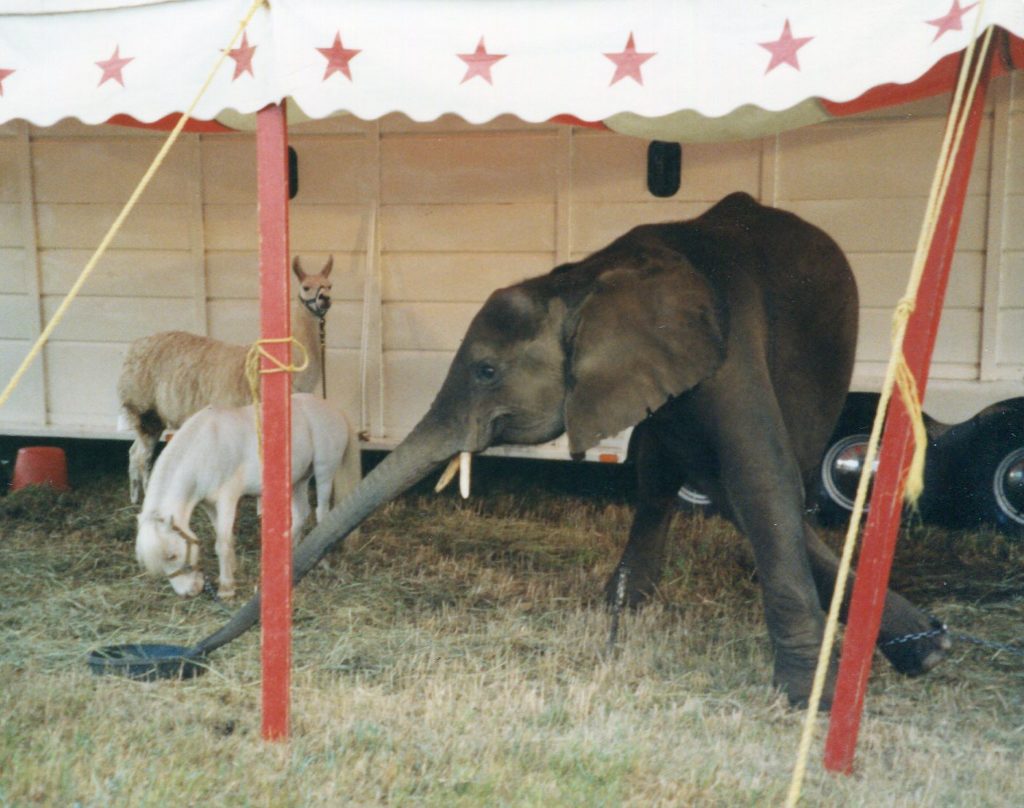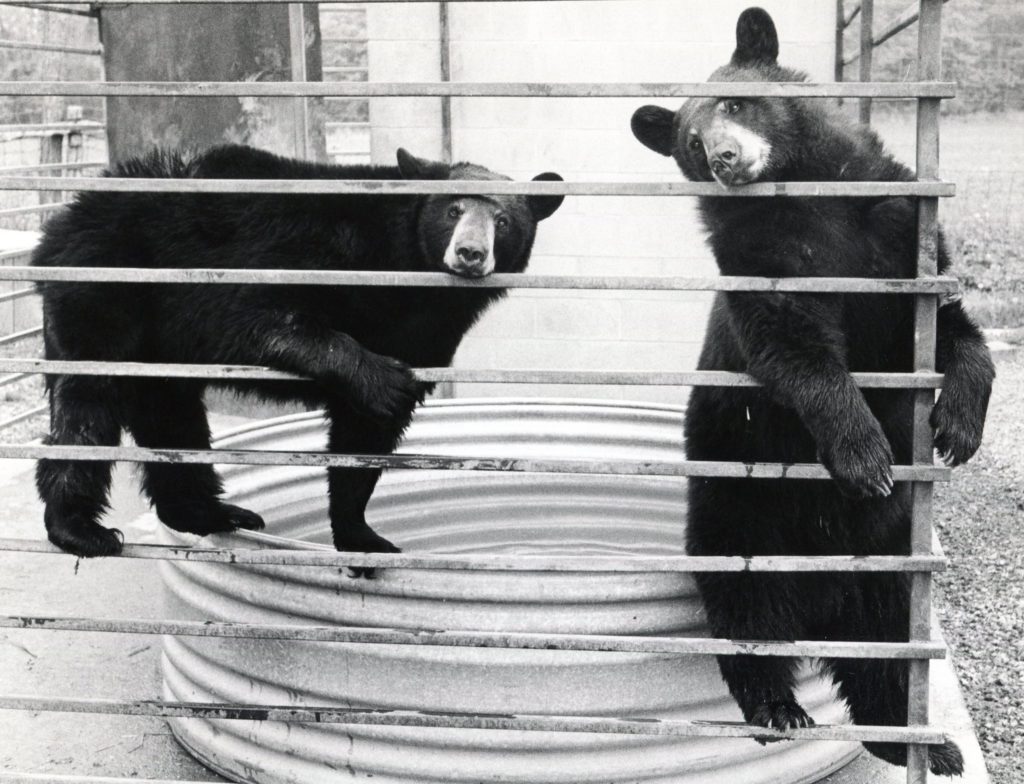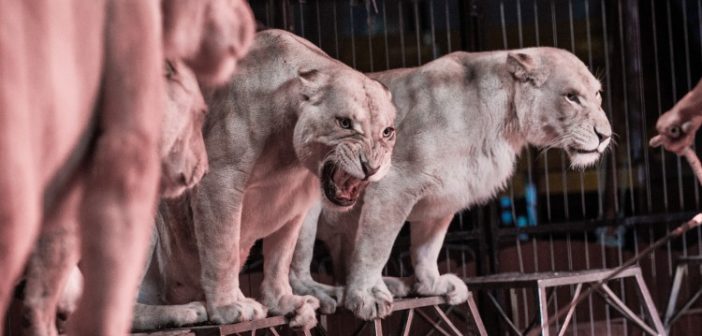All forms of entertainment that use captive wild animals to perform for humans are full of endless stress and suffering for the animals. These animals are often captured at a young age and forcibly taken away from their families and natural environments. They are subjected to horrific training practices where they experience psychological and physical abuse daily to force them to perform tricks and acts against their will. During training, trainers use whips, electronic prods and sharp objects to punish animals into submission and break their spirits.
Performing animals live lives of desperate boredom, frustration, and anguish, as they are usually confined in exceptionally small stalls or cages, where they are immobile the majority of their lives and deprived of the opportunity to exhibit their natural behaviors. Each animal is robbed of living the natural life they were meant to live, and instead they are forced to perform unnatural, often painful acts, and are exploited for profits.
Watching wild animals perform unnatural tricks does not help animals in the wild, nor teach children to respect or appreciate animals. Instead, circuses and performing animal shows teach children that it’s acceptable to mistreat and exploit animals for our amusement. Circuses do not teach wildlife conservation or anything of value regarding animal welfare.

Traveling circus animals can spend up to 11 months of the year on the road. They are confined inside very small stalls or cages, traveling for thousands of hours over very long distances. It’s frightening and stressful for them. Nearly all circus animals are restrained while traveling, and they often must sit and sleep in their own waste for long periods of time. They are transported in trucks or trains that are not temperature controlled, exposing them to extremes in temperature, both hot and cold. Traveling poses many physical risks to them.
There are few regulatory protections in place in the United Sates for circus or performing animals, and those that exist are often not enforced. Circuses and traveling shows must comply with the federal Animal Welfare Act (AWA) along with local laws, but none of these regulations effectively address the abuse the animals face. Most circuses and performing animal shows have a long history of violating the AWA, but without enforcement, these businesses continue on without changing their practices. Here are some fact sheets addressing specific circuses that continually violate the AWA.
There will never be enough laws to keep circus animals safe and free from harm, but the public can boycott these shows, share the truth about them on social media, and write or call state and federal legislators and city to ask for a ban on circuses and performing animal shows that use animals.

What You Can Do
- Never attend circuses with animals. Ask family and friends to do the same.
- Only attend circuses and venues that have animal-free entertainment. Here is a list of circuses that don’t use animals.
- Report a circus! Circus or event using animals coming to your area? Please submit this form!
- Sign petitions, write letters, and make phone calls asking circus management to drop the animal acts, and use only human performers. Do the same with local city/county officials. Here’s how you can be an advocate for performing animals.
- Write letters to newspaper editors and sponsors telling them circuses don’t need to feature wild animals to entertain. Ask retailers that support circuses with free tickets to stop supporting circuses with animal acts.
- Sign up for action alert newsletters by nonprofits protecting wildlife and animal welfare. Sign up for the PAWS newsletter here.
- Educate yourself. Read more about circuses and circus animals at these websites: Born Free USA, Elephant Sanctuary in Tennessee, Performing Animal Welfare Society, and People for the Ethical Treatment of Animals.
- Spread the Word! Share this page on social media and speak out against circuses that use animals.
This article was originally published on the Humane Decisions website.
Featured image: lions in a circus in France. Image credit Jo-Anne McArthur / One Voice.






2 Comments
Please stop this .
is there any way to pet some animals
cuz am thinking to own a hyena pet so plz help me if this is a good idea